Home >Web Front-end >JS Tutorial >jQuery beginners: analysis of the difference between find() method and children method_jquery
jQuery beginners: analysis of the difference between find() method and children method_jquery
- WBOYWBOYWBOYWBOYWBOYWBOYWBOYWBOYWBOYWBOYWBOYWBOYWBOriginal
- 2016-05-16 18:11:051383browse
First, let’s take a look at the English explanation:
children method: 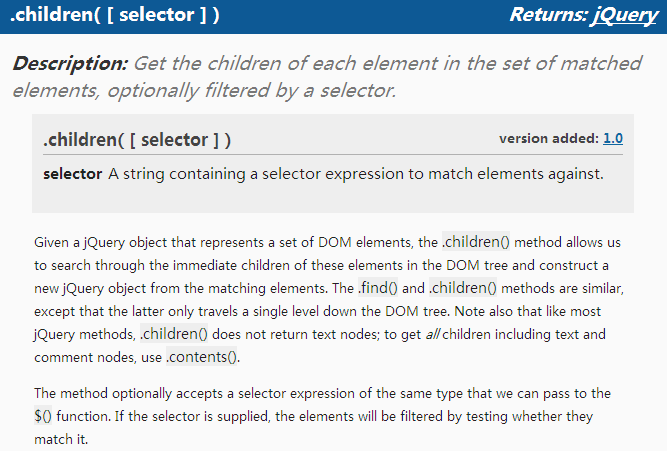
find method: 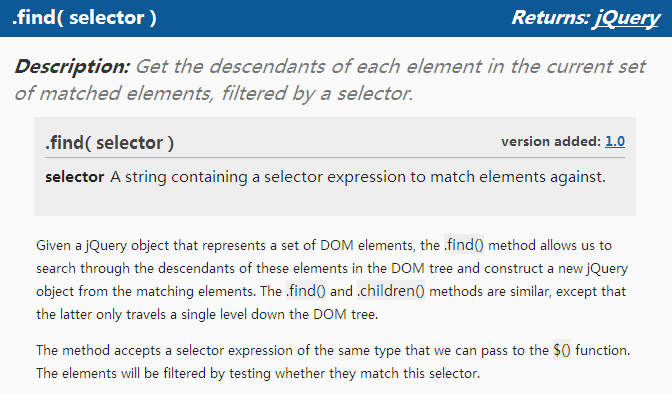
Through the above explanation, it can be summarized as follows:
1: children and Both find methods are used to obtain the subelements of element. Neither of them returns a text node, just like most jQuery methods.
2: The children method only obtains the child elements below the element, namely: immediate children.
3: The find method obtains all subordinate elements, that is: descendants of these elements in the DOM tree
4: The parameter selector of the children method is optional (optionally), used to filter child elements, but the find method The parameter selector method is required.
5: The find method can actually be implemented by using jQuery(selector, context): English says: Selector context is implemented with the .find() method; therefore, $('li.item-ii'). find('li') is equivalent to $('li', 'li.item-ii').
For example, there is the following html element: 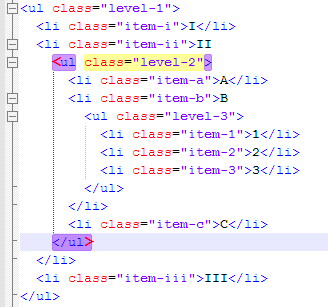
Use: $( 'ul.level-2').children().css('border', '1px solid green'); The effect is: 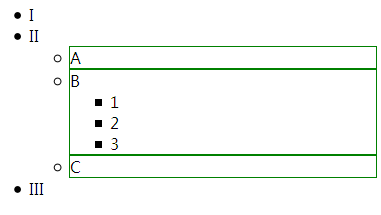
Use $('ul.level-2') .find('li').css('border', '1px solid green'); The effect is: 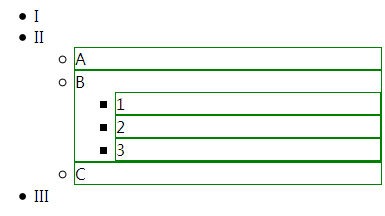
Related articles
See more- An in-depth analysis of the Bootstrap list group component
- Detailed explanation of JavaScript function currying
- Complete example of JS password generation and strength detection (with demo source code download)
- Angularjs integrates WeChat UI (weui)
- How to quickly switch between Traditional Chinese and Simplified Chinese with JavaScript and the trick for websites to support switching between Simplified and Traditional Chinese_javascript skills

